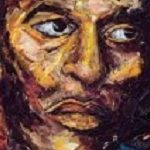
Ahmad Jaradat, membre du Bureau de la Fondation Frantz Fanon, à propos de la décision de la cour suprême palestinienne concernant les élections municipales palestiniennes.
The Israeli occupation and the division between Fatah and Hamas has created a crisis of democracy in Palestine.
On Thursday, the Palestinian Supreme Court of Justice in Ramallah ruled to freeze upcoming municipal elections in Palestine.
The municipal elections are frozen at least until the court’s next session on the issue, which is scheduled for December 21st. The Palestinian Elections Council has suspended all preparations for the elections pending the court’s final ruling.
Municipal elections were scheduled to take place on October 8th in Palestine. The court’s decision to cancel the elections citied the exclusion of East Jerusalem from the election process, as well as the ousting of five Fatah candidates from election lists in Khan Younis, Gaza Strip.
According to Ma’an News Agency, the ruling was in response to lawyers’ appeals that claim these two problems irreparably undermine the election’s legitimacy.
Municipal elections were held in Palestine in 2006 and 2012. Palestinian Jerusalemites did not participate in both, due to the Israeli occupation’s illegal annexation of Jerusalem into present-day Israel in 1967. In 2012, though elections took place in the West Bank, they were canceled in Gaza.
Because elections have occurred under fraught conditions in the past, the court’s justification did not convince many Palestinians, especially since the legal complaints and court’s ruling materialized at the eleventh hour – exactly one month before the elections were scheduled to take place.
Most of the political parties in Palestine issued statements calling for the court to reconsider its decision and reestablish a clear path towards elections.
Hamas rejected and condemned the court’s decision, calling it a political one without any legal basis. The Democratic Alliance, a unified list of five leftist parties, criticized the court’s ruling too, as did individual Palestinian leftist parties within it.
October’s municipal elections were supposed to be the first time Palestinians in Gaza and the West Bank participated in joint elections since the division between Gaza and the West Bank, or Hamas and Fatah, took root in 2007. Many, especially those active in the political parties, hoped that this year’s elections would facilitate national reconciliation between the two.
Some also saw the municipal elections as a key step towards elections for both the Palestinian Legislative Council and the presidency. The Palestinian Legislative Council fell apart in 2006 and presidential elections have not been held since 2005.
Finally, the leftist parties’ unification for the October elections as the Democratic Alliance – a process years in the making – singaled the hopeful development of a third political option to the polarized Fatah and Hamas parties for Palestinian voters.
However, the cancellation of October’s elections suggests that the division between Fatah and Hamas is deeper than originally thought. The current situation confirms that there are social and political groups, especially within Fatah and Hamas, whose interests and viability depend on continuing division. Consequently, the democratic rotation of the institutions of the Palestinian people will not be a concern as long as the division between Fatah and Hamas continues. Thus, our priority should be to end of this division, as it would create political space to revive democratic life in Palestine.
It is clear in the aftermath of the court’s cancelation of the elections that achieving Palestinian national unity is both a political and a national project – not a technical or legal issue. National unity must be reformulated as inclusive of and responsive to the interests of the Palestinian people as well as our aspirations for national liberation. Secondly, a unity agreement must be formed between all Palestinian political parties, though, as stated previously, such an agreement is particularly needed between Hamas and Fatah. We should not forget that once the Palestinian Liberation Organization (PLO) used to include all Palestinian political factions.
Apart from the court’s entrenchment of political polarization, the cancellation of elections is certainly a blow to democratic life in Palestine ; it is diminution of the right of citizens to run for election, vote, and democratically renew ruling municipal bodies through the ballot box. Newspaper articles, chatter on social media, and TV interviews on the court’s decision confirm a lack of confidence amongst the public in regards to the emergence of a democratic horizon in Palestine in the foreseeable future.
Nevertheless, we must also take into account the role of the occupying power in obstructing democratic life in Palestine. Israeli forces arrested some of the candidates and representatives of political parties in election commissions in recent weeks. Additionally, it is the occupation that deprives Palestinians in East Jerusalem of right to participate in the elections – a deprivation that applies to all of the occupied territories. This is why the Supreme Court of Justice reinforced the postponement of the elections. Consequently, in spite of widespread criticism of the decision, many applauded the court for its insistence that occupied Jerusalem is Palestine.
article écrit pour le site Alternative Information Center

